4.21 The Pulse Of Covid-19: The Trends Of The Past Week
I don’t think it’s just happenstance that this week my Spotify Discover Weekly first track is titled “Where are we going?” by Donald Byrd, a 1973 Jazz track with lyrics like, “Tell me, where are we going? Oh, what’s the future showin’? Oh, where are we headed?” Aren’t these the million-dollar questions of the moment?
One thing is for certain: it’s not going to be an all or nothing equation; instead, it’s more likely there will be new creations and norms that form from our old lives merged with new values, attitudes, and behaviors we’ve seen during this pandemic.
Just like the Zonkey – a rare Zebra/Donkey– leaders, companies, and individuals will evolve to become new and unique combinations of themselves, leveraging the past and present to emerge with strength and resilience. With that in mind, let’s look into what combinations of new and old are evolving in the market as a source of insight, inspiration, and maybe even a point of levity.
This week we’ve woven Harris’ latest data throughout the trends, highlighted in bold
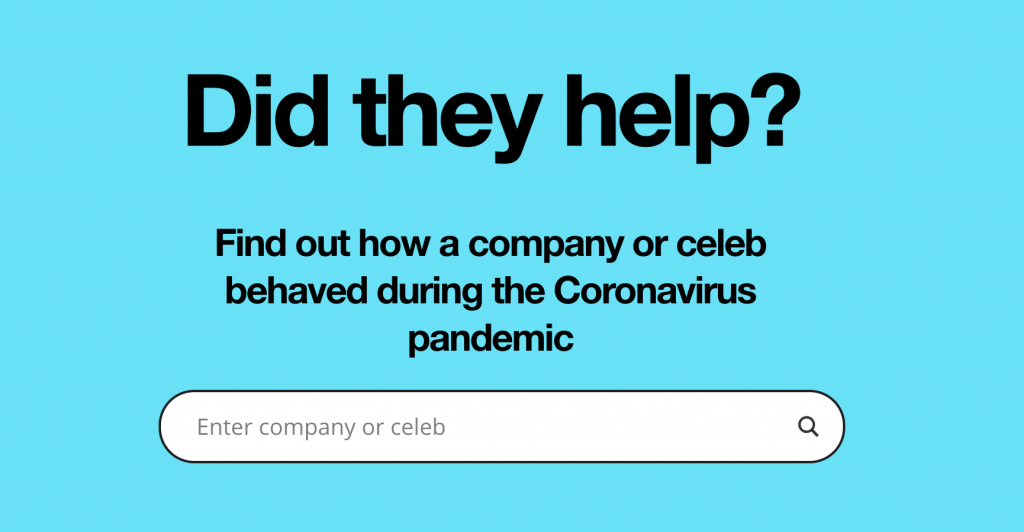
Leaders Shift Into Zonkey Mode: Confronted by disruption, leaders are asking themselves, “ How should we change and adapt to the times?” This level of responsibility is forcing businesses to reimagine how they can deliver value today – and consumers are watching. For example, Did they Help?, a site run by volunteers in the UK, documents actions companies are taking today ranking them as “zeros” or “heroes” in relief efforts. Here’s how we see companies pivoting to ‘hero’ status:
- How do companies pivot when people move from FOMO (fear of missing out) to FOGO (fear of going out)? AirBnb launches virtual experiences, so you can take meditation classes with sheep. Lean Startup author Eric Ries, explains why more businesses need to be asking questions like Airbnb- e.g. How do I provide a new service, using my existing assets and infrastructure? Amazon imagines a new business model, helping provide its almost 900K Amazon sellers health insurance options. And Uber leverages its infrastructure to launch Uber Connect, a delivery service to send care packages to loved ones, while researchers at Mount Sinai in NYChave gone mobile, starting to track volunteers for COVID-19 symptoms via text (to join text COVID to 64722).
- Meanwhile, in a time where the digital divide has never been greater, closed libraries across the U.S. are reimagining their services to offer parking lot wi-fi and Austin is rolling out 110 school buses equipped with wi-fi for neighborhoods with limited access.
- ‘Goliaths’ are offering ‘Davids’ life rafts, as LVMH sets up a fund to support young designers, Anna Wintor and CFDA raised $4.1 million to help small designers survive. Meanwhile, big tech tries to even the playing field for small business owners; for example, YouTube launches free DIYTool for brands to create short video ads, while Instagram launches free buttons to help restaurants increase delivery, gift cards, and donations.
- Leaders are zagging when others zig: Ireland quadruples WHO contributions after the U.S. halts funding. Forbes points out that women leaders aren’t just a nice-to-have but a necessity, as the common factor for the countries with the best coronavirus responses.
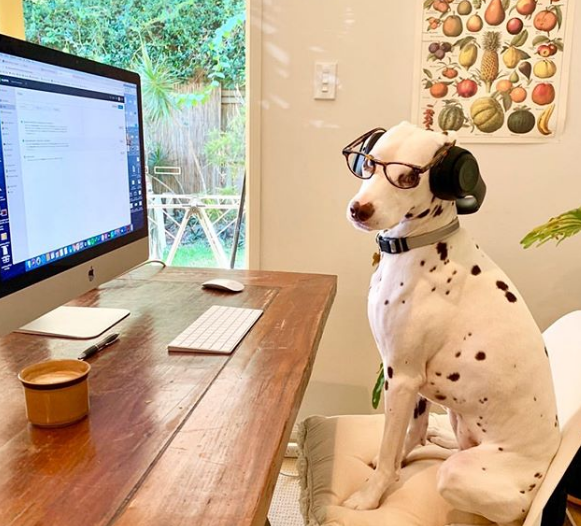
Gearing Up For A New Job Market: In the past four weeks, a total of 22 million Americans have filed jobless claims. The next phase is figuring out what’s next and helping Americans get back on their feet. Of those who have been furloughed, 24% say they believe they will be rehired in 1 to 2 months, while one third it will be 3 to 6 months (36%), and a similar number anticipate it taking 6 months to 1 year (30%).
- WSJ highlights how HR managers have had to move to virtual coffee dates and Zoom interviews amid the lockdown. Meanwhile, P2P clothing rental company Wardrobe is offering free luxury outfits for women interviewing right now. In Germany, hotels pivot to offer Work-From-Hotel oasis, while this beauty line has emerged to protect your face from increased screen time
- To help Americans get back up on their feet, Candor has made an exhaustive and dynamic list of who is hiring right now, while Edtech startup Springboard is offering a weekly career coaching seminar for free to help job seekers prepare for a “post-pandemic economy.” Meanwhile, Andrew Yang and Pope Francis propose seriously considering Universal Basic Income in the wake of the global pandemic.
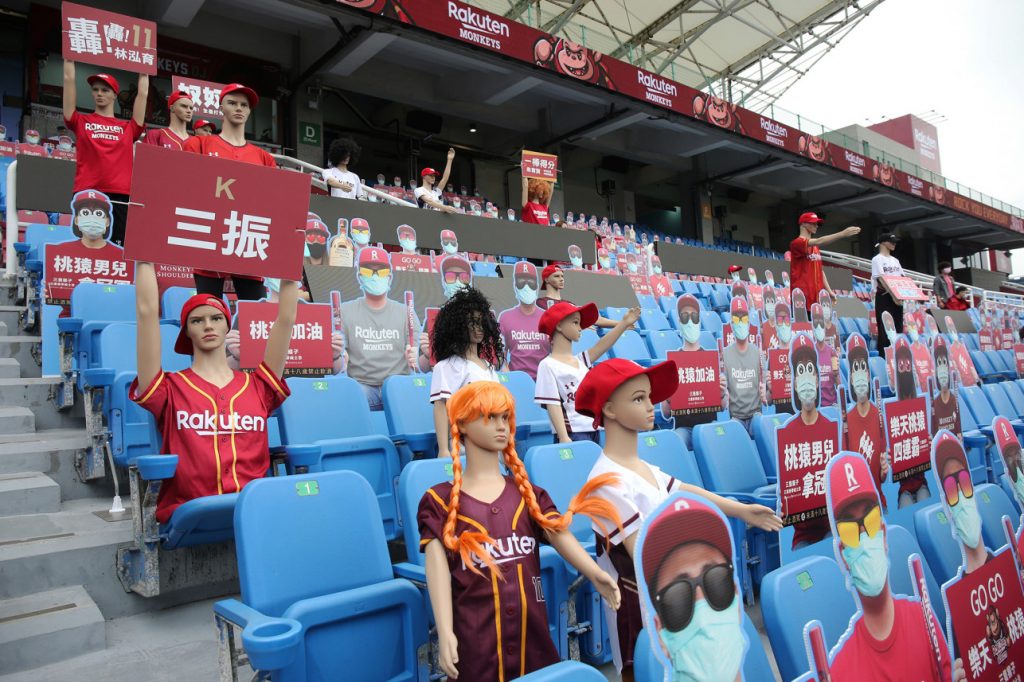
Rewired Sports Arenas: Sports leagues in the U.S. and around the world are working to figure out how to build the excitement and experience of watching sports, without stadiums and arenas packed with fans. And this is a relatively urgent pursuit: Nearly half of Americans say they miss watching sports on TV (45%) and attending sporting events in person (49%).
- The NBA says it’s developing a streaming service with Microsoft that will “transform” how fans experience the league, leveraging personalization, AI and gamification. Meanwhile, MLB has a crazy contingency plan to get the season going that includes a functional Biodome-like setting in Arizona, and the NFL is in discussions to play in empty or partially filled stadiums (a move supported by 41% of Americans). In Finland, the pro hockey league has restarted via eSports, taking their championships virtual.
- 6.3 million sports fans got their fix through Michael Jordan’s documentary series The Last Dance, which relays “The Untold Story of Michael Jordan’s Chicago Bull,” setting a record for a documentary airing on ESPN.
- The NFL Draft may get rewired, with data leveraging technology to extract performance data about college players from their game film, which is especially useful as scouts haven’t been able to watch players in person.
- In Taiwan, the baseball league restarted with robots and mannequin ‘fans’ in seats. Meanwhile in North America, 2 out of the 4 major leagues may potentially aggregate “crowd noise” from at-home spectators for real-time use in telecasts of sporting events. Americans want to see sanitation upgrades before safety attending a live sporting event again, such as cleaning services guaranteeing hygienic wiping down of seats (43%); hand sanitizer at every seat (40%); mandatory masks for food vendors (39%); stadium seating configured for social distancing (35%); and maximum capacity limits to ensure 6-feet between patrons and staff (35%).
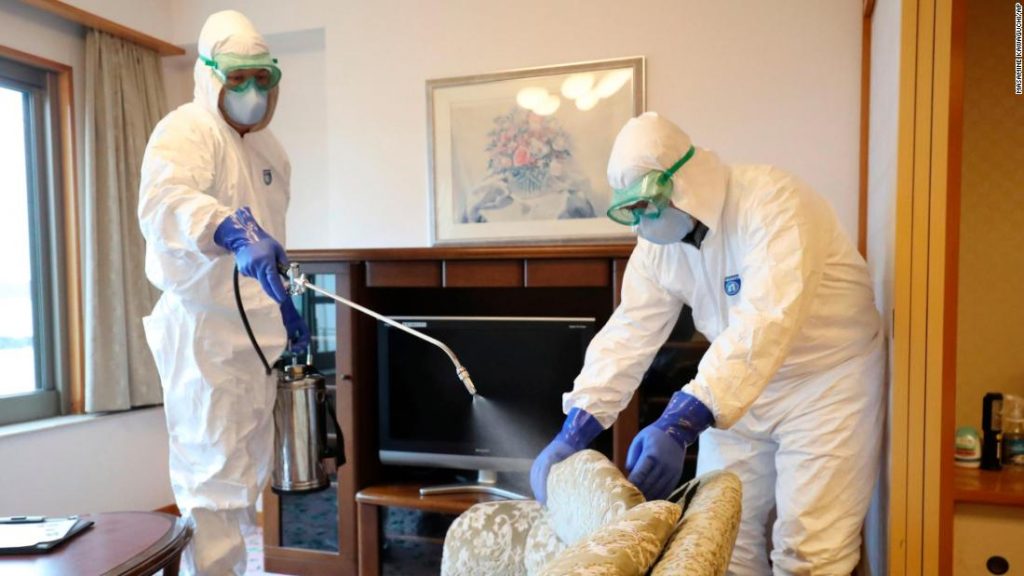
Sani-Lux Travel: What happens when sanitization becomes the ultimate act of luxury service?
- Luxury hotels that have pivoted to service frontline workers are shifting their service models to prioritize sanitation, offering new ‘sanitization’ standards like 72-hour deep clean gaps between users. Industry travel experts believe consumers will need new sanitation guarantees, policies, and crystal clear communication to feel safe traveling again.
- Our latest data shows that, for Americans to feel safe flying again, they will want hygienic wiping down of seats (55%); hand sanitizer packets handed out with snacks (54%); mandatory masks on the plane for passengers and crew (46%); required temperature tests for passengers and crew (45%), and planes configured for social distancing (e.g., no middle seats) (45%).
- In the meantime, people are traveling through their own creative portals, such as thisAustralian family that recreated a 15-hour holiday flight from their living room, while these travelers recreated their best travel memories from home.
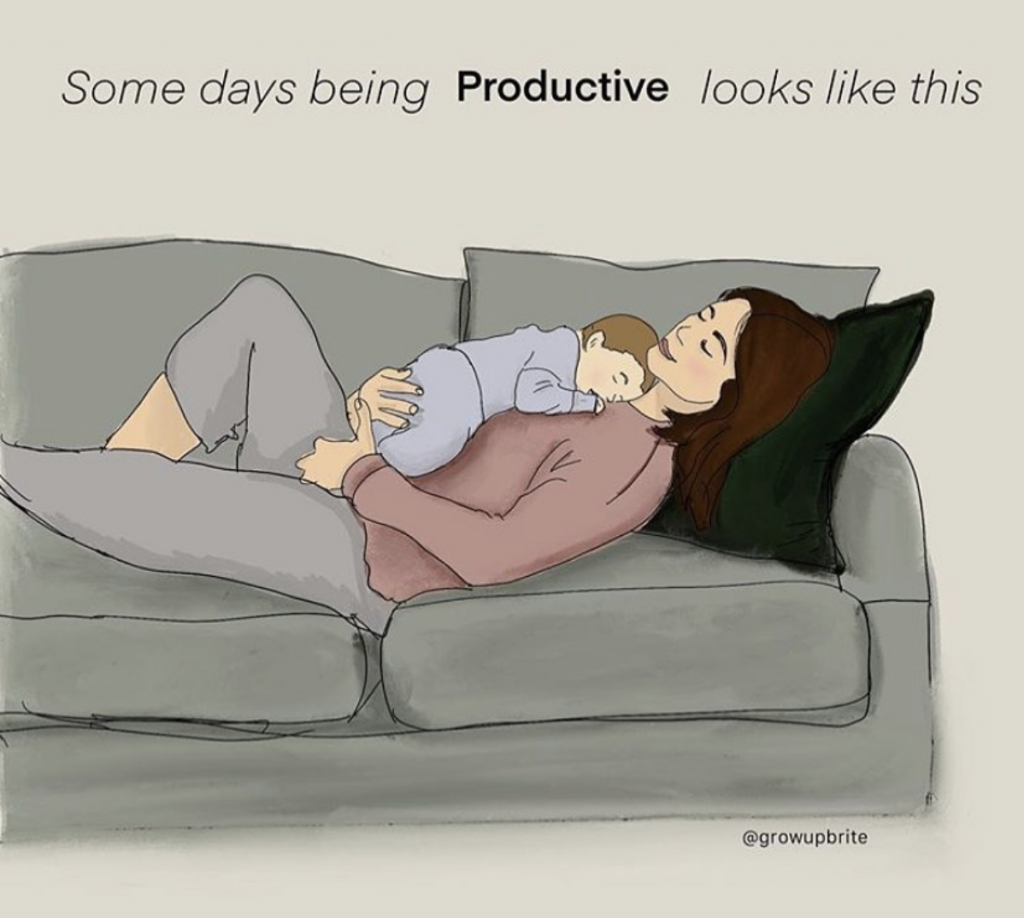
Permission To Chill: A time for our greatest minds to come together and reimagine what the world should look like for the better as we emerge. 52% of Americans say they have felt grateful for the break from work to be at home with their family or by themselves since the stay-home orders have gone into effect (up 4% from last week).
- WIRED talks to urban planning experts who believe this would be a great time to reimagine citiesto be more pedestrian and bike-friendly. Meanwhile, almost a third of Americans (29%) say they are likely to move out of densely populated areas and toward rural areas once the pandemic ends.
- Permission to chill hits pop culture as we see why sitting on the couch is my new favorite hobby, and we should embrace “Wuliao” and treat downtime like the privilege it is. The WSJ documents how Animal Crossing has become coronavirus therapy, and now you can even make your own Quaran-zine!
- Life from a windowsill: in quarantine, the a new pastime is budding – growing vegetable scraps on windowsills – while 17 artists capture a surreal New York from their windows.
- Hacking our mindset: Yale’s happiness expert says ‘fresh-start energy’ can help you create new meaningful traditions, while a Harvard Business School professor provides proven hacks to increase your happiness. Meanwhile, the Icelandic Forest Service recommends hugging trees while you can’t hug people.
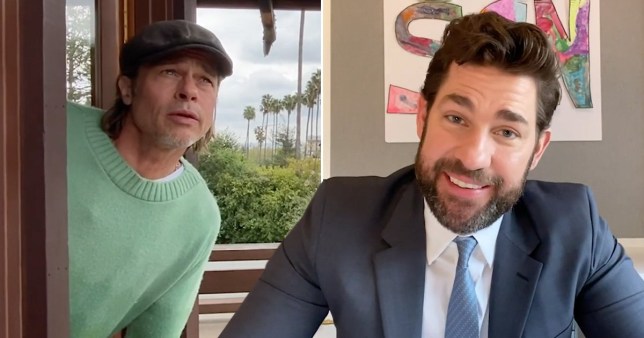
Low-Pro-tainment: Entertainment gets permission to go low production, fail fast, and try new things while Hollywood is locked down.
- John Krasinki’s new YouTube show, Some Good News, continues to bring low production, high-spirited vibes to the internet and, this time, Brad Pitt joins him to deliver the weather. He is also throwing virtual prom parties with Billie Eilish and the Jonas Brothers for high school students. Meanwhile, everyone is invited to a virtual happy hour at Downton Abbey and Cardi Binterviews Bernie Sanders on Instagram Live, talking politics, pandemics and manicures.
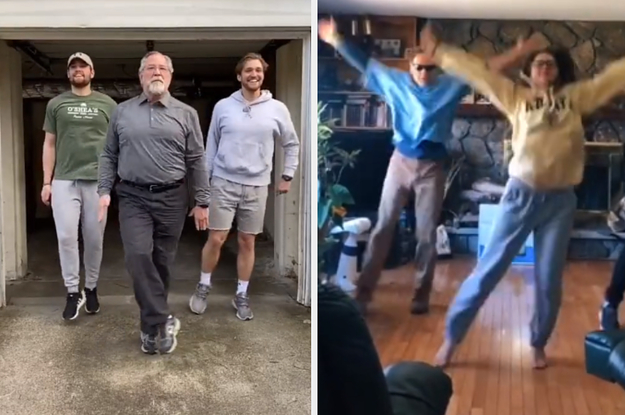
- TikTok gets weirder the more we’re in quarantine: we’re watching makeup artists lip-syncing to John Mulaney, while parents learn TikTok dances with their kids and Judi Dench joins the fun with her grandson, #priceless.
- eFestivals are on the rise, as Minecraft is throwing music festivals and thousands are showing up, andCoachella’s new documentary with live music and star-studded interviews is now available on YouTube for free.
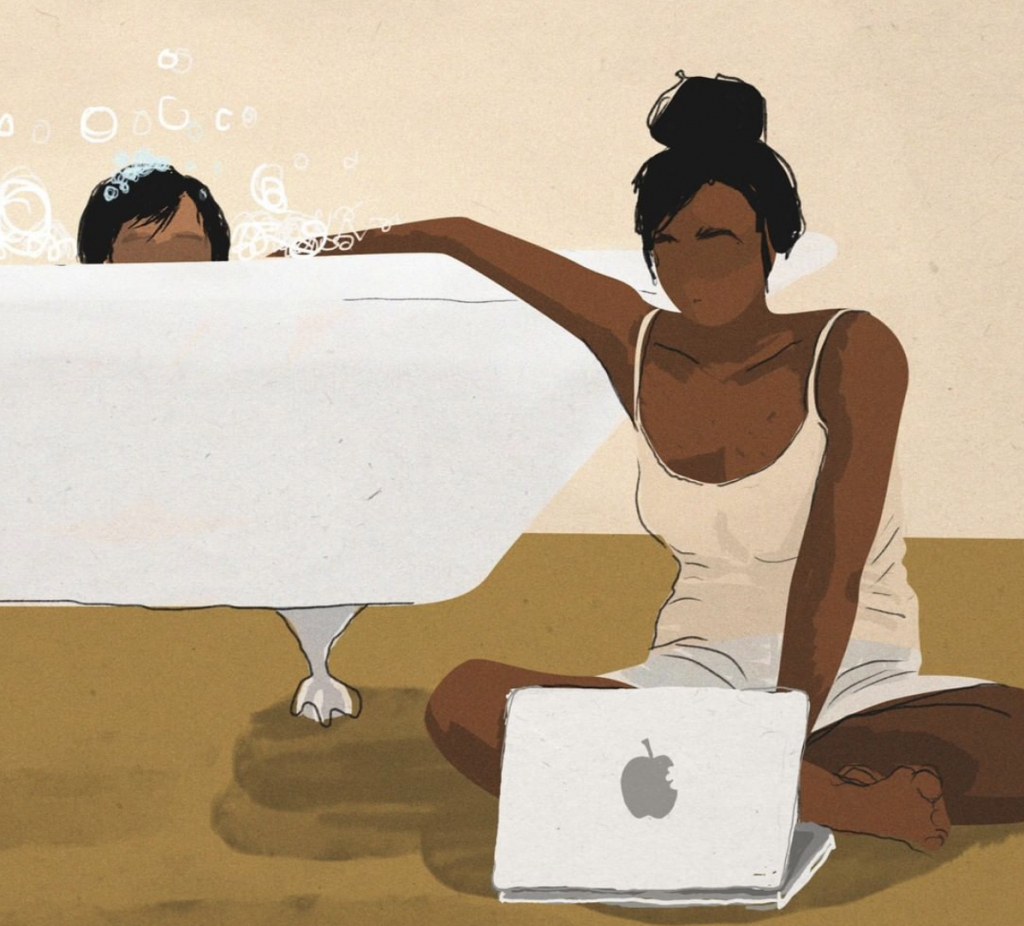
The Messy Work/Life Exposed & Accepted: There is no more sweeping the mess of work/life balance under the rug. Many employees have families and finally aren’t apologizing for it, especially as more Americans work from home.
- Companies are pivoting their responses in meaningful ways beyond empathy, Microsoft is giving all parents 12 weeks of Covid-parental leave, while Google is now giving 14 weeks. In Australia, one million families will receive free childcare as part of coronavirus relief.
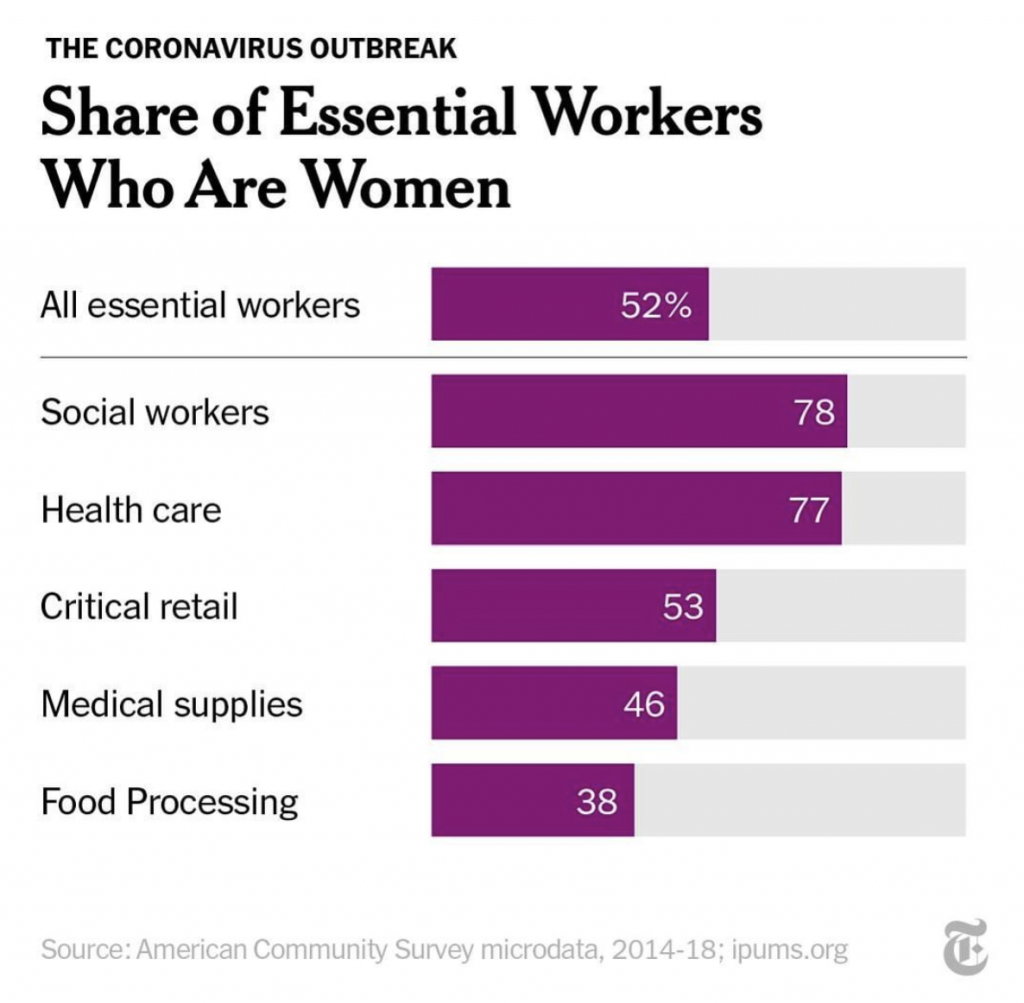
- Women are now the most essential workers in America: One in 3 jobs held by women have been designated as essential, according to the NYT. Brianna Wiest from Forbes argues that it might create a gender role reversal of the century. CNN cites that, as millions of dads have suddenly been forced to stay home with their kids, this historic moment could forever shift dynamics in both firms and families, leading to greater gender equality down the road. Meanwhile, women business owners say simply being at home and bearing witness to day-to-day invisible work can have a sizable impact on how men split domestic duties.
- And Dads are trying their best, from our research we see that dads are more likely than moms to say they have given in to more screen time (56% dads vs 48% moms), rely on more treats/snacks to keep my kids happy (45% dads vs 37% moms), and buying more toys, books or games (40% dads vs 24% moms).
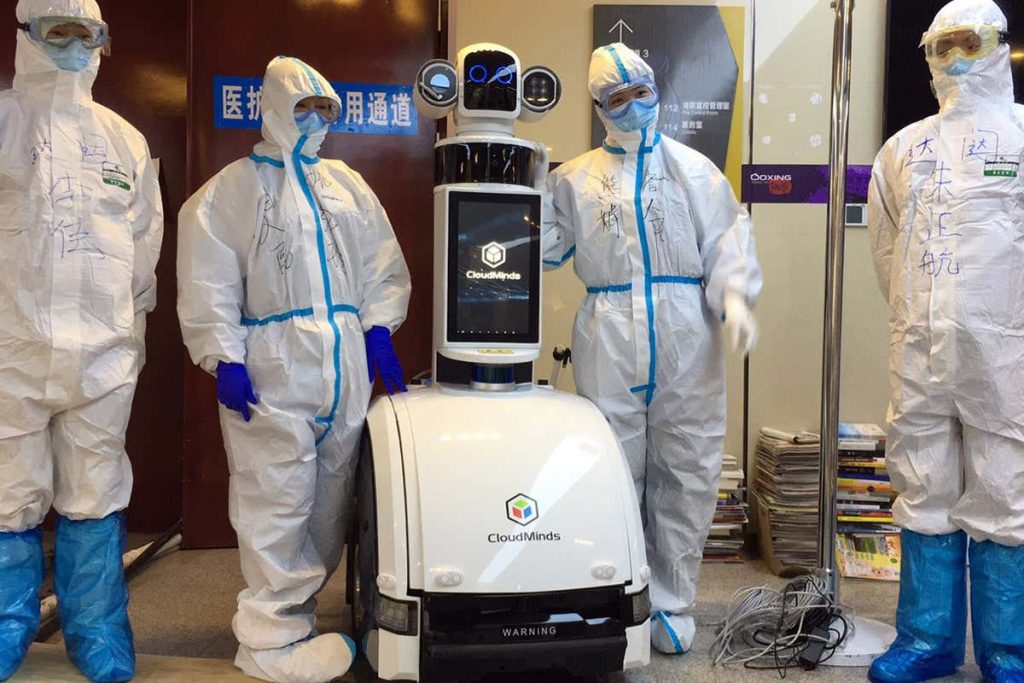
Bots On The Frontline: When does Hollywood’s imagination and sci-fi hypotheticals become our reality? They’ve imagined the future of robots, drones, and AI, and now we may be at the tipping point of adoption out of necessity. 81% of Americans approve of large technology companies helping to trace coronavirus cases to monitor exposure (vs. 19% who disapprove). Even the director of Contagion, Steven Soderbergh, will be the one who will lead the entertainment industry coronavirus committee.
- Drone usage gets ramped up: Ghana turns to drones to enable faster coronavirus testing, while these drones in Italy take temperatures and issue fines.
- Thermal detection gets hotter: General Motors and Amazon turn to thermal cameras to detect coronavirus spread in warehouses and Whole Foods.
- Robots to the rescue: in Wuhan, they experimented with a bot-only ward, while in Singapore they created the XDbot that can disinfect surfaces very quickly. In the U.S., robots are now being used to take real-time inventory of grocery stores, while in Japan, robots were used to replace university students in Zoom graduation ceremony.
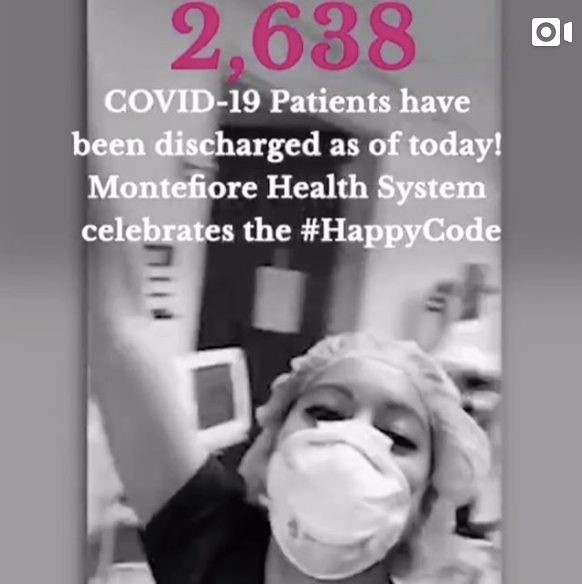
Finding Light in the Darkness: The ultimate Zonkey: finding the human spirit of ingenuity and relief in times of crisis.
- Not only are healthcare workers saving our lives (THANK YOU), but they are also celebrating the lives they’ve saved as well, while these national guards perform the Cupid Shuffle, and this golden retriever pitches in offering virtual therapy for frontline workers.
- Love is not lost, New Yorkers’ can now officially get married via Zoom, and, if your wedding was postponed due to the pandemic, Busch is offering a free year’s supply of beer.
- Age is just a mindset for this 99-year-old veteran who raised over $23MM for the UK’s healthcare system by walking in his garden, while this 93 woman re-established her book club on Zoom.
- Individuals go big in their giving, Michael Che of ‘S.N.L.’ honors his grandmothers’ passing by paying rent for 160 N.Y.C. families in her building, while Colin Kaepernick provides COVID-19 Relief for communities of color. This bakery customer spent $1,000 on single doughnut, while a man in Iowa spent $82,000 on gift cards and sent them to every home in his town.
- We’re no longer bowling alone, communities are coming together, New York saw a 288% increase in volunteers, people are belting “New York, New York” out of their windows, and communities are bonding together creating an exponential number of mutual aid volunteer Google Docs.
- Social distancing gets visualized around the world, from chalk graffiti in India to an ‘alligator length’ in Florida, and even animals are practicing it.
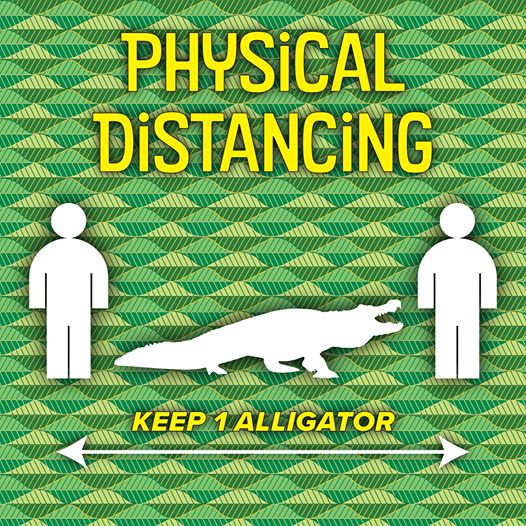
That’s it for now. Till next week.
